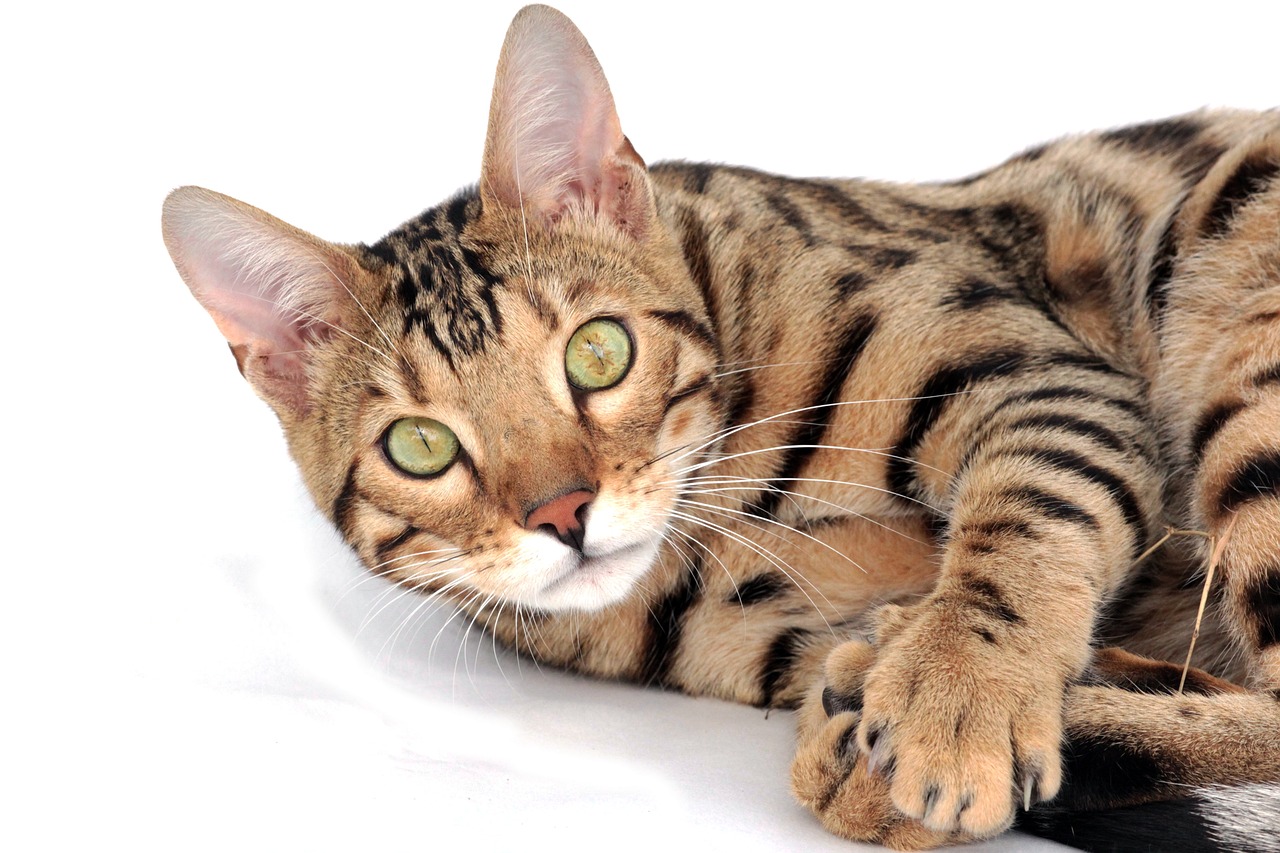The Enigmatic Bengal Cat
Introduction:
The Bengal cat is an exquisite and captivating breed that has been winning the hearts of cat enthusiasts worldwide since its introduction in the 1960s. Known for its striking appearance, energetic personality, and intelligence, the Bengal cat is a unique and sought-after companion.
History:
The Bengal cat’s lineage can be traced back to a crossbreeding experiment in the early 1960s. Jean Mill, a cat breeder, crossed a domestic cat with an Asian leopard cat (Prionailurus bengalensis), a small wild feline native to parts of Asia.
This endeavor aimed to create a domestic cat breed that exhibited the leopard’s exotic appearance without sacrificing a gentle temperament suitable for domestic life.
In 1983, the International Cat Association (TICA) recognized the Bengal cat as a breed. Since then, selective breeding and refinement efforts have solidified the Bengal’s distinctive traits and secured its place among popular cat breeds worldwide.
Physical Traits:
The Bengal cat’s striking appearance is one of its defining features. With its wild-like beauty, the Bengal boasts a medium to large-sized muscular body, reminiscent of its Asian leopard cat ancestry. Its legs are well-proportioned, and its back slopes slightly from shoulders to hindquarters.
The most eye-catching aspect of the Bengal is its uniquely patterned coat, which can come in various colors, including brown, silver, and snow. Its coat pattern typically includes rosettes, spots, or marbling, evoking the visual appeal of a wildcat. The Bengal’s coat is short, sleek, and dense, making it easy to maintain with regular brushing.
Temperament:
Bengal cats are known for their high energy levels, intelligence, and playful nature. Their engaging personalities make them lively and interactive companions. Bengals often enjoy interactive play, and their athleticism allows them to excel in activities like climbing and jumping. They are curious and thrive in stimulating environments that provide mental and physical challenges.
Additionally, Bengals are highly social cats and typically form strong bonds with their owners. They are affectionate, and many Bengals enjoy being cuddled and petted. However, their independent streak may lead them to show affection on their terms.
Care:
Caring for a Bengal cat involves providing a stimulating environment that encourages its active nature. Interactive toys, puzzle feeders, and climbing structures can keep Bengals mentally and physically engaged. Regular playtime and interactive sessions with their owners are essential for their well-being.
Maintaining a balanced diet is crucial for the overall health of Bengals. High-quality commercial cat food, formulated to meet their specific needs, is recommended. However, consult with a veterinarian to ensure they receive the proper nutrients for their age, size, and activity level.
As with all cat breeds, regular veterinary check-ups and vaccinations are essential for maintaining their health. Bengals are generally robust cats, but they can be prone to certain health conditions such as hypertrophic cardiomyopathy (HCM) and progressive retinal atrophy (PRA). Responsible breeders take steps to screen for genetic conditions to produce healthy kittens.
Responsible Breeding Practices:
Due to the Bengal’s popularity, there has been a rise in breeding practices that prioritize appearance over health and temperament. Responsible breeding is crucial to preserving the Bengal breed’s integrity and ensuring the well-being of the cats. Ethical breeders focus on producing healthy, well-tempered kittens that conform to the Bengal’s breed standards.
Responsible breeders prioritize genetic testing to identify potential health issues and strive to improve the breed through careful selection. They also prioritize socialization, raising kittens in a loving home environment, exposing them to various stimuli, and encouraging positive interactions.
Conclusion:
The Bengal cat is a captivating and unique feline breed that combines the allure of a wildcat with the charm of a domestic companion. Its striking appearance, playful personality, and intelligence make it a delightful addition to any cat-loving household. Responsible breeding practices are essential to maintaining the Bengal’s integrity as a breed and ensuring the health and well-being of these enigmatic felines.
References:
International Cat Care (2021). Bengal. https://icatcare.org/advice/bengal/
